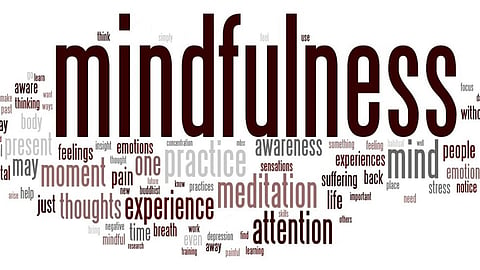
- Home
- न्यूजग्राम
- NewsGram USA
- India
- World
- Politics
- Entertainment
- Culture
- Lifestyle
- Economy
- Sports
- Sp. Coverage
- Misc.
- NewsGram Exclusive
- Jobs / Internships

By Nithin Sridhar
During a time when people across the world are struggling hard to manage work-related stress and balance professional and personal lives, Mirabai Bush has helped thousands to harmonize their lives and optimize their outputs through contemplation and mindfulness practices.
She is the co-founder of The Center for Contemplative Mind and Society and teaches contemplative practices and develops programs that apply contemplative principles to organizational life. She had also helped Google create its 'Search Inside Yourself' program, and was one among those who introduced Buddhist practices in the West in the 1970's.
She traces her spiritual practices to her root-teacher, Neem Karoli Baba and other masters in India from whom she learned various Hindu and Buddhist meditation practices. In an exclusive interview with NewsGram she spoke about her life, her work, and her stay in India way back in 1970's.
Speaking about the Google program 'Search Inside Yourself' that she had helped create, Mirabai Bush said that it was the first of its kind based on the concept of mindfulness. Mindfulness is one of the parts of the Buddhist Vipasana meditation and in the US, the term is mostly used to mean focused awareness, usually on the breath.
But, Google, she said, created an emotional intelligence program based on mindfulness. She added: "We realized that the young engineers at Google were very focused and good at creating algorithms, but what they needed to work on was self-awareness and awareness about others that would help them work better in teams. So, we developed a program that uses mindfulness along with practices like loving kindness and compassion, and then we translated it into activities like mindful listening, mindful emailing etc."
The program aimed at helping people understand themselves better so that they could understand others better and communicate with them in a better manner. She said that the first course was launched in 2008, and has been extremely successful with at least 3000 Googlers from around the world taking the course till now. She added that a book titled 'Search Inside Yourself' has also been written by Chade-Meng Tan, who was her partner in the program. A leadership institute has also been started wherein people from outside Google are trained in the program.
Elaborating on the concept of mindfulness, Mirabai Bush said: "Mindfulness is taught throughout Buddhism, but in the US, it is usually understood as a way of bringing full focus to the present moment without judgment, or being fully present in the moment without judgment."
One basic way, she said, by which this mindfulness could be cultivated was by sitting quietly, closing one's eyes, bringing the awareness to the breathing, and by letting go of the thoughts that arise without any judgment. But, she stressed on the fact that mindfulness is neither an attempt at emptying the mind, nor an attempt at attaining a blissful state. Instead, it is just an attempt at seeing things just as they are. Whenever a thought or an emotion arises, a practitioner will simply let it go and bring back the attention to the breath.
"But," she said: "breath focus is just a technique to use; the real mindfulness in everyday life is to be able to bring attention to whatever it is you are working on in your workplace, the person who is speaking to you, or the thoughts in your mind while you work through something. That's the mindful state."
Regarding the similarities between mindfulness practices and the Hindu and Buddhist practices of yoga and dhyana (meditation), she said that Hatha Yoga is a very good practice for becoming aware, if it is properly practiced in that manner. If one becomes aware of the sensations in the body while doing asanas (postures), that is exactly the same thing as mindfulness.
But at the same time, some of the practitioners (of yoga) concentrate on being absorbed in certain states. Mindfulness on the other hand is not about being absorbed into any state, but being present with everything that is happening. Hence, there is a difference between the two. But, mindfulness is more rooted in Buddhist practices.
Many people from the west had gone to India in 1970 and studied Buddhism in monasteries. But, when they came back to the west, they did not bring back the forms of Buddhism that were practiced in everyday life. They only brought back what they learned in monasteries like various forms of focused meditation.
She added that mindfulness in the west is not understood the way it is understood by the Buddhist scholars. In the West, it is a generalized term. Jon Kabat-Zinn was one of the first people to coin the term 'mindfulness'. While he was teaching these practices to those who were in a lot of pain and stress, he focused on the calming and stabilizing aspect of meditation and called it 'mindfulness'.
More in the Series:
